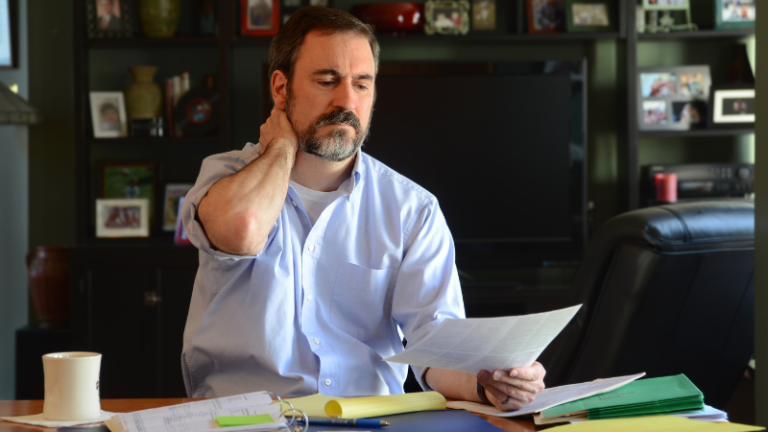Kansas City has amended an ordinance which added extra steps to the earnings tax refund process for non-resident taxpayers. The previous ordinance was added in March 2022 and required that non-resident taxpayers file a claim against the city in small claims court in order to apply for an earnings tax refund. Many taxpayers and even some tax professionals called the updated ordinance “unworkable” as it placed a huge burden on both taxpayers and city employees.
St. Louis City’s earnings tax refund system has come under similar fire in recent weeks after a judge ruled in favor of six plaintiffs who argued their refunds were unfairly denied by the city’s Collector of Revenue. These two cities may now face a swell of earnings tax refund requests.
Key Takeaways:
- Kansas City has simplified its rules regarding earnings tax refunds for non-residents who work within city limits, no longer requiring them to file a claim through small claims court for each protested payment
- Taxpayers have until April 18, 2023 to submit the required forms and documentation to request a refund
- A judge has ruled in favor of the six plaintiffs who sued St. Louis City over their denied earnings tax refunds
- St. Louis City has appealed this ruling
- The attorneys involved in the St. Louis case intend to appeal the denial of class-action status for the case which could have further impacts on qualifying workers
Pandemic Created Lasting Impact on Earnings Tax Refund Process
Both Kansas City and St. Louis City have a 1% earnings tax that applies to all residents, regardless of the location of their workplace. This tax also applies to non-residents who work within city limits. At the beginning of the COVID-19 pandemic, many people who typically worked within the city but lived outside of city limits began to work remotely rather than in office. Since they were not commuting to the office and using city resources, many sought refunds on the earnings tax they were charged.
Swell in Pandemic-Era Refund Requests Led to ‘Unworkable’ Rule
In Kansas City, this led to city officials passing an amendment to make the refund process more challenging in an effort to stem the flow of the expanding refund requests. Prior to the pandemic, Kansas City typically refunded about $4 million each year to remote workers whose employers were located within city limits, but the workers themselves worked from home or traveled often.
In 2020, the refund amount ballooned to nearly $17 million. In 2022, Kansas City refunded about $16 million on 2021 tax collections, according to remarks Kansas City finance department director Tammy Queen made to the council committee.
Small Claims Court Requirement Falls Flat One Year Later
To compensate for the heightened number of refund requests, the City Council added a requirement in March 2022 that taxpayers file a claim against the city in small claims court in order to receive an earnings tax refund. Kansas City commissioner of revenue Mari Ruck explained the process, “Within 30 days of your employer remitting your withholding to the city, you must file a payment under protest (form). For each payment under protest you file, you must file a petition in Jackson County Court within 90 days.”
Even if a taxpayer did so and paid the $37.50 it took to file a case, there was no guarantee that their refund would be approved. Queen also called the court challenges a “pretty heavy administrative burden” on the city’s finance department’s staff, according to reporting from The Kansas City Star.
Simplified Return Request Promises to Take Burden off Taxpayers
The burden this process put on the taxpayer, as well as staff members of the Kansas City finance department, eventually grew too hard to ignore and as of March 2, 2023, non-residents can use a far more simplified process to apply for an earnings tax refund. Under the new guidelines, taxpayers must complete each of the following steps to properly file an earnings tax refund request, according to the Kansas City Missouri’s website:
- Submit Forms RD109 and RD109NR if applicable; and
- Submit sufficient documentation that the taxpayer is entitled to a refund; and
- Submit all documents by the federal income tax deadline
Taxpayers can file an extension request with the City of Kansas City for an additional six months to file the return. It must be noted that the taxpayer is required to comply with the City’s Municipal Code of Ordinances to be considered valid. Any refund requests submitted past the April 18 date will be denied.
How Does the St. Louis City Earnings Tax Refund Process Compare?
St. Louis City also requires residents and non-residents who work within city limits to pay a 1% earnings tax, which accounts for roughly 36% of the city’s income. During the earliest stages of the pandemic, non-resident workers paused their commutes and worked from home instead.
Before the pandemic, the St. Louis Collector of Revenue routinely processed and approved earnings tax refunds for non-residents for those days they had worked outside of the city. At the onset of the pandemic, the Collector began denying those refunds, leading to a lawsuit filed by six plaintiffs. The judge in the case ruled in the plaintiffs’ favor, ordering the City to pay them a little over $8,000 total to reimburse their refund amount.
2020 Earnings Tax Returns Improperly Rejected, Judge Rules
The ruling read, in part, “So beginning in tax year 2020, despite no changes in the Earning Tax law, the collector stopped issuing refunds for work conducted outside of the city, unless the work was done while traveling, a distinction that was not previously made.” Earlier in the case, the court denied the plaintiffs a class action status, which means the ruling only applies to those six taxpayers. Lawyers for the plaintiffs plan to appeal the class-action status decision if necessary.
Although a spokesperson for the Collector of Revenue’s office initially claimed it was too late for non-resident taxpayers to file a refund for tax year 2020, they later corrected themselves, stating that those who filed a refund request for tax year 2020 could still be eligible.
Small Claims Court Required for St. Louis City E Tax Refund Seekers
It should be noted that other would-be refund-seekers would be required to file small claims or individual lawsuits against the City to receive the funds they are owed. Much like the situation out of Kansas City, this could prove burdensome to affected taxpayers and place undue stress on the court system, which might eventually lead to an outcome not so different from what’s happening on the Western edge of the state.
Anders State and Local Tax group monitors local and state-level legislation to ensure they’re offering the best and most up-to-date information possible to clients. To learn more about the ways Anders advisors can help you reduce your tax burden and the associated fees, contact Anders below.






